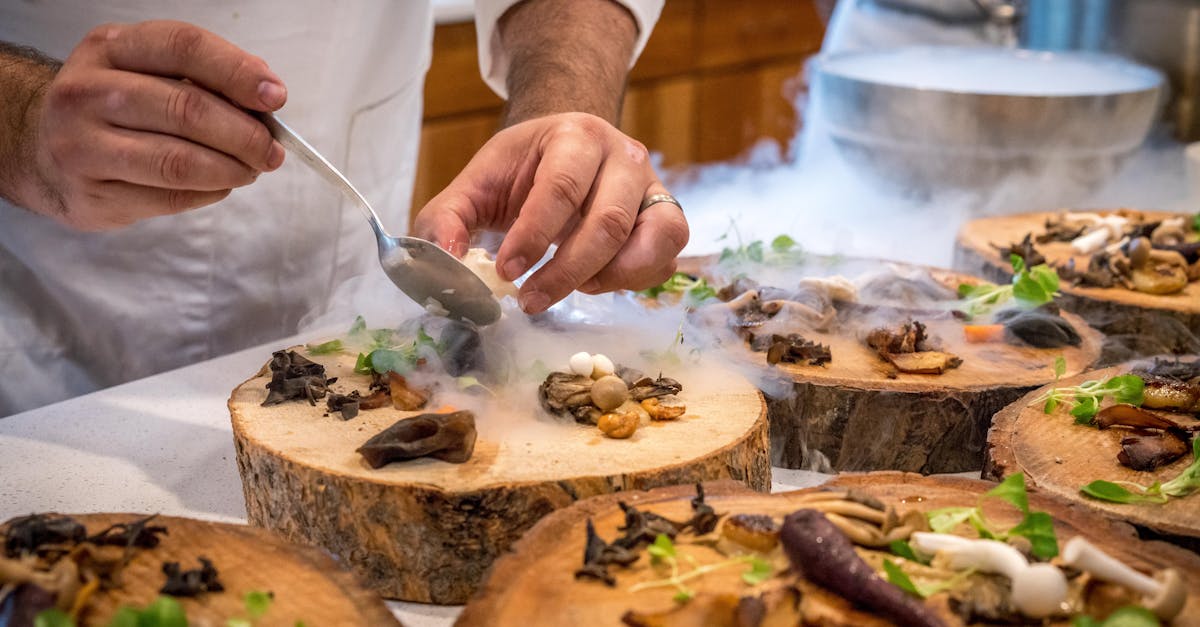
Introduction
In 2025, the culinary world stands on the brink of revolution. As global populations grow, the demand for innovative gastronomic solutions becomes increasingly urgent. Emerging trends promise to redefine not only how we eat but also how we produce and think about food. Visionary chefs, scientists, and entrepreneurs are converging their efforts to craft future-forward culinary experiences. Among the key drivers of change is the push for sustainability and ethical consumption. Amidst these developments, technology and traditional culinary arts form a symbiotic relationship, crafting the gastronomic landscape of tomorrow.
Embracing Sustainable Practices
The future of gastronomy is undeniably tied to sustainability. In 2025, eco-conscious dining takes center stage, emphasizing locally sourced ingredients and reduced waste. Vertical farming and hydroponics become mainstream, enabling urban areas to grow fresh produce efficiently. Chefs are incorporating more plant-based dishes into their menus, reducing reliance on animal agriculture. Further, zero-waste cooking strategies are innovatively repurposing byproducts into gourmet dishes. Diners are becoming more informed and are gravitating towards venues that emphasize transparent sourcing and ethical practices.
Fusion of Tradition and Innovation
As the culinary world progresses, the delicate balance between honoring tradition and embracing innovation becomes paramount. Tech-driven kitchens are embracing AI and robotics to enhance precision and efficiency in cooking. Augmented reality dining experiences allow patrons to visually explore the origins of their meals. Still, the essence of time-honored techniques remains at the heart of culinary art. Chefs honor their culinary heritage while infusing modern twists that cater to evolving palates. This fusion helps in crafting rich narratives around the dining experience, maintaining a deep connection with food history.
Technological Culinary Innovations
By 2025, kitchens are becoming much more technologically advanced. With AI-driven appliances, precision cooking reaches unparalleled heights. 3D food printing creates complex dishes that were once impossible to produce manually. These technologies are magnifying chefs' creativity, inspiring them to push boundaries. Robotics in kitchens are not just increasing efficiency but are working alongside chefs, taking on arduous tasks while allowing human touch to dictate creativity. Such developments enable a more personalized dining experience, customized to individual preferences using data-driven insights.
Globalization and Culinary Diversity
Globalization has turned the world into a culinary melting pot, with chefs sampling and incorporating international flavors into local dishes. In 2025, diners expect more than just taste—they seek stories behind every plate, steeped in a variety of cultural influences. The appeal of cross-cultural fusion cuisine continues to rise as people become increasingly open to new experiences. Through technology, such as virtual reality, diners can experience global food journeys from their local eateries, savoring diverse cuisines from the comfort of their own neighborhoods.
Health-Focused Dining
Well-being lies at the core of gastronomy's future. With growing awareness of health, nutrition-conscious dining is becoming the norm. In 2025, menus are tailored not just to taste but to provide balanced nutritional benefits. Personalized diet plans crafted by AI consider individual health profiles, ensuring diners receive meals aligned with their dietary needs. Genomic food profiles cater to personal nutritional requirements, creating a harmony between culinary indulgence and health consciousness. These initiatives are developed in collaboration with health professionals, drawing the lines between medicine and meals closer.
Ethical Eating and Animal Welfare
As awareness around ethical eating heightens, gastronome pioneers in 2025 make conscious efforts toward cruelty-free consumption. Lab-cultured meats emerge as viable sources, promising lower environmental impact without compromising on taste. Additionally, more ethical seafood practices are adopted using farmed fish from sustainable setups. Animal welfare is prioritized, reflected in reduced demand for mass-produced meats. This shift is educating consumers, enlightening them on the implications of their dietary choices on both the planet and animals, fostering a more compassionate culinary culture.
Food as an Experience
Dining in 2025 is not merely about satisfying hunger; it's about engaging all senses. Gastronomy has evolved into a narrative craft, with meals experienced as a cohesive story. From immersive dining environments to audio-visual elements complementing flavor profiles, restaurants curate holistic sensory experiences. These experiences leverage technology to offer moments of magic, creating lasting impressions. Such gastronomic escapades engage emotional and aesthetic senses, transforming each meal into a unique event cherished beyond the palate.
Educational and Collaborative Approaches
Education and collaboration are at the forefront of gastronomic evolution. In 2025, there exists a robust relationship between chefs, scientists, and educators. Culinary schools incorporate courses on technology-driven cooking, sustainable practices, and nutrition science. Workshops, fairs, and food festivals promote open dialogues between creators and consumers, fostering a community of informed and curious eaters. This collaborative ecosystem nurtures future generations of culinary artists equipped to tackle ongoing gastronomic challenges while continuing to innovate and inspire.
Conclusion
As we glance toward Gastronomy Guidance Visions 2025, the culinary arts are poised for an exciting transformation. Driven by technology, sustainability, and ethical responsibility, chefs and diners alike are becoming pioneers of a new culinary era. While innovation fuels advancements, the heart of gastronomy will always be about bringing people together over shared meals. The interplay of tradition and innovation will ensure that the dining experience remains enriched and meaningful. Ultimately, as we incorporate these practices, the future of food promises not just savory delights but a nourishing journey for the body, mind, and planet.